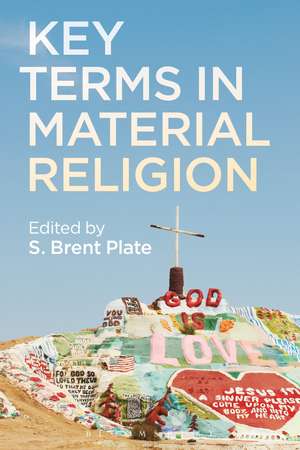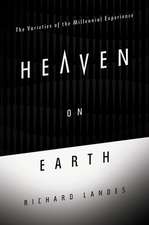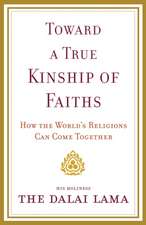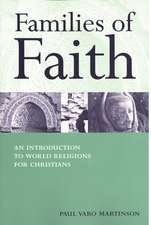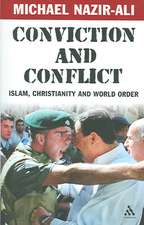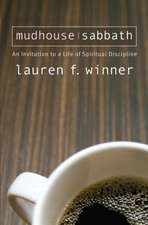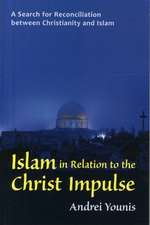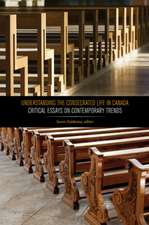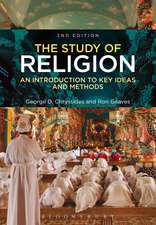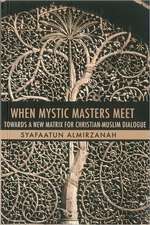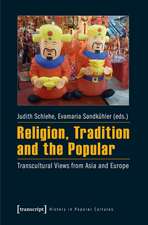Key Terms in Material Religion
Editat de S. Brent Plateen Limba Engleză Paperback – 16 dec 2015
| Toate formatele și edițiile | Preț | Express |
|---|---|---|
| Paperback (1) | 254.14 lei 3-5 săpt. | |
| Bloomsbury Publishing – 16 dec 2015 | 254.14 lei 3-5 săpt. | |
| Hardback (1) | 776.24 lei 6-8 săpt. | |
| Bloomsbury Publishing – 16 dec 2015 | 776.24 lei 6-8 săpt. |
Preț: 254.14 lei
Preț vechi: 306.96 lei
-17% Nou
Puncte Express: 381
Preț estimativ în valută:
48.63€ • 50.90$ • 40.48£
48.63€ • 50.90$ • 40.48£
Carte disponibilă
Livrare economică 10-24 martie
Preluare comenzi: 021 569.72.76
Specificații
ISBN-13: 9781472595454
ISBN-10: 1472595459
Pagini: 304
Ilustrații: 37 colour illus
Dimensiuni: 156 x 234 x 15 mm
Greutate: 0.52 kg
Editura: Bloomsbury Publishing
Colecția Bloomsbury Academic
Locul publicării:London, United Kingdom
ISBN-10: 1472595459
Pagini: 304
Ilustrații: 37 colour illus
Dimensiuni: 156 x 234 x 15 mm
Greutate: 0.52 kg
Editura: Bloomsbury Publishing
Colecția Bloomsbury Academic
Locul publicării:London, United Kingdom
Caracteristici
Contains over 37 color images, and extensive introduction by S. Brent Plate which introduces students to the discipline
Notă biografică
S. Brent Plate is a writer, lecturer and Visiting Associate Professor of Religious Studies, Hamilton College, USA. He is co-founder and managing editor of Material Religion: The Journal of Objects, Art and Belief. His publications include The History of Religion in 5 1/2 Objects, Religion and Film, and The Religion and Film Reader.
Cuprins
Introduction to Material Religion, S. Brent Plate1. Aesthetics, Inken Prohl (Professor of Religious Studies, University of Heidelberg, Germany)2. Belief - Robert A. Orsi (Professor of Religion, Northwestern University, USA)3. Body - Angela Zito (Professor of Anthropology and Religious Studies, New York University, USA)4. Brain/mind - Ann Taves (Professor of Religious Studies, University of California, Santa Barbara, USA)5. City - Francis Dodsworth (Senior Lecturer in Criminology, Kingston University London, UK), Elena Vacchelli (Senior Research Fellow in Gender and Migration, Middlesex Univesrity London, UK) and Sophie Watson (Professor of Sociology, The Open University, UK)6. Collection - Crispin Paine (Honorary Lecturer, UCL, UK)7. Digital - Gregory Price Grieve (Associate Professor, University of North Carolina Greensboro, USA)8. Display - Ivan Gaskell (Professor of Cultural History and Museum Studies; Curator and Head of the Focus Gallery Project, Bard Graduate Centre, USA)9. Dress - Annelies Moors (Professor at the Department of Anthropology and Sociology, University of Amsterdam, The Netherlands)10. Emotion - Anna M. Gade (Professor in the Nelson Institute for Environmental Studies, University of Wisconsin-Madison, USA)11. Fetish - Bruno Latour (Professor at Sciences Po Paris, France)12. Food - Nora L. Rubel (Associate Professor, University of Rochester, USA)13. Gender - Deborah Whitehead (Assistant Professor of Religious Studies, University of Colorada, Boulder, USA)14. Icon/image - Robert Maniura (Senior Lecturer, Department of History, Birkbeck, University of London, UK)15. Magic - Peter Pels (Professor at the Institute of Cultural Anthropology and Development Sociology, Leiden University, the Netherlands)16. Maps - Anita Patil-Deshmukh (Executive Director of PUKAR, India)17. Mask - Allen F. Roberts, Professor, University of California, Los Angeles, USA)18. Medium - Birgit Meyer (Professor of Religious Studies, University of Utrecht, the Netherlands)19. Memory - Oren Stier (Associate Professor of Religious Studies, Florida International University, USA)20. Movement - Ann Pellegrini (Associate Professor of Religious Studies, New York University, USA)21. Prayer - Anderson Blanton (Postdoctoral Fellow at the Center for the Studies of the American South, UNC, USA)22. Race - Roberto Lint-Sagarena (Associate Professor of American Studies, Middlebury College, USA)23. Ritual - Ron Grimes (Director of Ritual Studies International and Professor Emeritus of Religion and Culture at Wilfrid Laurier University, Canada)24. Sacred - David Chidester (Professor of Comparative Religion, University of Cape Town, South Africa)25. Screen - S. Brent Plate (Visiting Associate Professor of Religious Studies, Hamilton College, USA)26. Sensation - David Howes (Professor of Anthropology at Concordia University, Canada)27. Sign - Wei-Cheng Lin (Assistant Professor in the Department of Art, University of North Carolina at Chapel Hill, USA)28. Smell - James McHugh (Assistant Professor of Religion, University of Southern California, USA)29. Sound - Isaac Weiner (Assistant Professor in Religious Studies, Ohio State University, USA)30. Space - Tom Tweed (Professor, Harold and Martha Welch Endowed Chair in American Studies, University of Notre Dame, USA)31. Spirit - Peter van der Veer (Director of the Max Planck Institute for the Study of Religious and Ethnic Diversity at Göttingen, Germany)32. Taste - Rich Freeman (Visiting Assistant Professor of History and Religious Studies, USA)33. Technology - Kathryn Lofton (Professor of Religious Studies, Yale University, USA)34. Thing - David Morgan (Professor of Religious Studies, Duke University, USA)35. Touch - Marleen de Witte (University of Amsterdam, the Netherlands)36. Vision - Robert S. Nelson (Professor, Yale University, USA)37. Words - S. Brent Plate (Visiting Associate Professor of Religious Studies, Hamilton College, USA)BibliographyIndex
Recenzii
Brent Plate has marshalled an ambitious, and wide-ranging, lexicon of regularly deployed terms (37 in all) which help 'to show us the importance of the material world in the making and practising of religion'.
This is a treasure chest, full of unexpected riches. Leading international scholars offer a range of lucid, sparkling and thought-provoking essays that shine new light on Key Terms in Material Religion. Enriched by a wealth of examples, memorable chapters combine to create an engaging, original and imaginative contribution to the study of material religion.
Over the past decade or so, material religion has solidified into one of the most productive discursive spaces within the study of religion's. By assembling a stimulating series of vivid entries on obvious and less obvious keywords, this volume displays the many handy affordances of this analytical screen. Especially noteworthy and timely is this anthology's attention to the senses, which will enrich readers' perception of religion.
At our interdisciplinary moment of candidness, creativity, and confusion, nothing is more useful than a methodological lexicon, in other words: keywords. Explained, illustrated, and put to work, these key terms in material religion gel together as a fresh guideline for how-to-do cultural analysis at a time when many are floundering by lack of leading thoughts, yet rightly resistant to old dogmas. The essays are succinct but substantial; the topics relevant; the authors the best around. I wish more fields produced books like this.
The study of material religion is at the cutting edge of religious studies. Plate (Hamilton College) sets the lay of the land in the introduction. Usefully he, as he puts it, "sets the stage" for the field of material religion in the following parameters: bodies meet objects, the senses, time and space, orientation and disorientation of communities and individuals, and strictures and structures of tradition. Some examples of entries are belief, collection, dress, icon, memory, sign, thing, words. Entries are presented through stories and case studies. The book began as a series of discussions with Plate's fellow editors at the journal Material Religion to work out a special issue on key words in the field. The special issue had 19; these are included here in revised form, as are an additional 18. The purpose is to create a "working lexicon" for the field, not an exhaustive encyclopedia. The international contributors come from diverse academic fields. In addition to religious studies, these include criminology and anthropology. Each entry is about five to six pages long and has a bibliography with ten or so items. Not meant to be a traditional reference book in that its entries are exploratory and not definitive, it will be a valuable adjunct to other material religion texts. Summing Up: Highly recommended. Upper-level undergraduates through researchers/faculty; general readers; professionals/practitioners.
This is a treasure chest, full of unexpected riches. Leading international scholars offer a range of lucid, sparkling and thought-provoking essays that shine new light on Key Terms in Material Religion. Enriched by a wealth of examples, memorable chapters combine to create an engaging, original and imaginative contribution to the study of material religion.
Over the past decade or so, material religion has solidified into one of the most productive discursive spaces within the study of religion's. By assembling a stimulating series of vivid entries on obvious and less obvious keywords, this volume displays the many handy affordances of this analytical screen. Especially noteworthy and timely is this anthology's attention to the senses, which will enrich readers' perception of religion.
At our interdisciplinary moment of candidness, creativity, and confusion, nothing is more useful than a methodological lexicon, in other words: keywords. Explained, illustrated, and put to work, these key terms in material religion gel together as a fresh guideline for how-to-do cultural analysis at a time when many are floundering by lack of leading thoughts, yet rightly resistant to old dogmas. The essays are succinct but substantial; the topics relevant; the authors the best around. I wish more fields produced books like this.
The study of material religion is at the cutting edge of religious studies. Plate (Hamilton College) sets the lay of the land in the introduction. Usefully he, as he puts it, "sets the stage" for the field of material religion in the following parameters: bodies meet objects, the senses, time and space, orientation and disorientation of communities and individuals, and strictures and structures of tradition. Some examples of entries are belief, collection, dress, icon, memory, sign, thing, words. Entries are presented through stories and case studies. The book began as a series of discussions with Plate's fellow editors at the journal Material Religion to work out a special issue on key words in the field. The special issue had 19; these are included here in revised form, as are an additional 18. The purpose is to create a "working lexicon" for the field, not an exhaustive encyclopedia. The international contributors come from diverse academic fields. In addition to religious studies, these include criminology and anthropology. Each entry is about five to six pages long and has a bibliography with ten or so items. Not meant to be a traditional reference book in that its entries are exploratory and not definitive, it will be a valuable adjunct to other material religion texts. Summing Up: Highly recommended. Upper-level undergraduates through researchers/faculty; general readers; professionals/practitioners.
